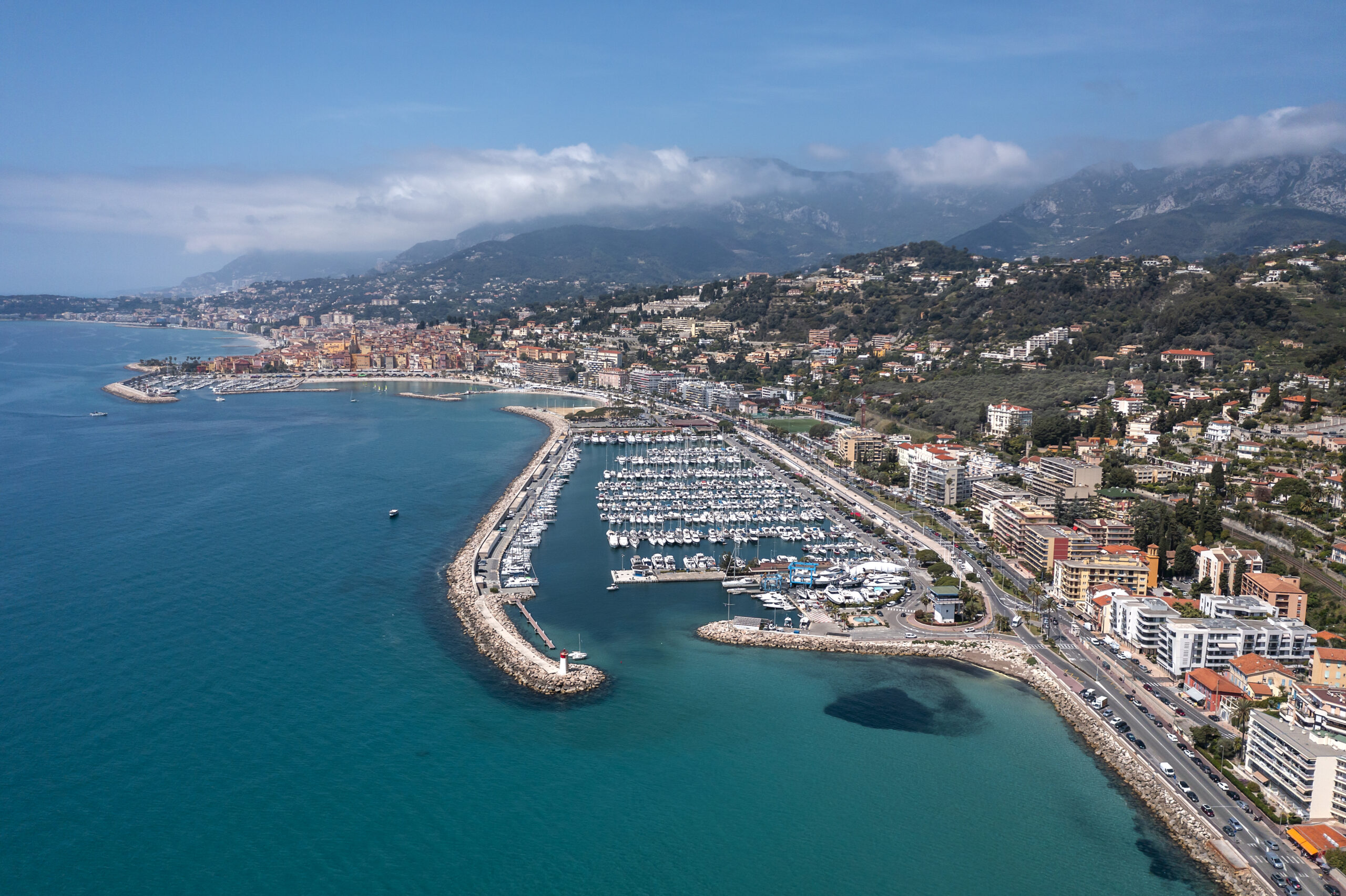PSL International Bachelor of Environmentally Engaged Engineering I-BE³
One-of-a-Kind Bachelor’s Program of Sciences in Engineering
180 ECTS – 6 semesters
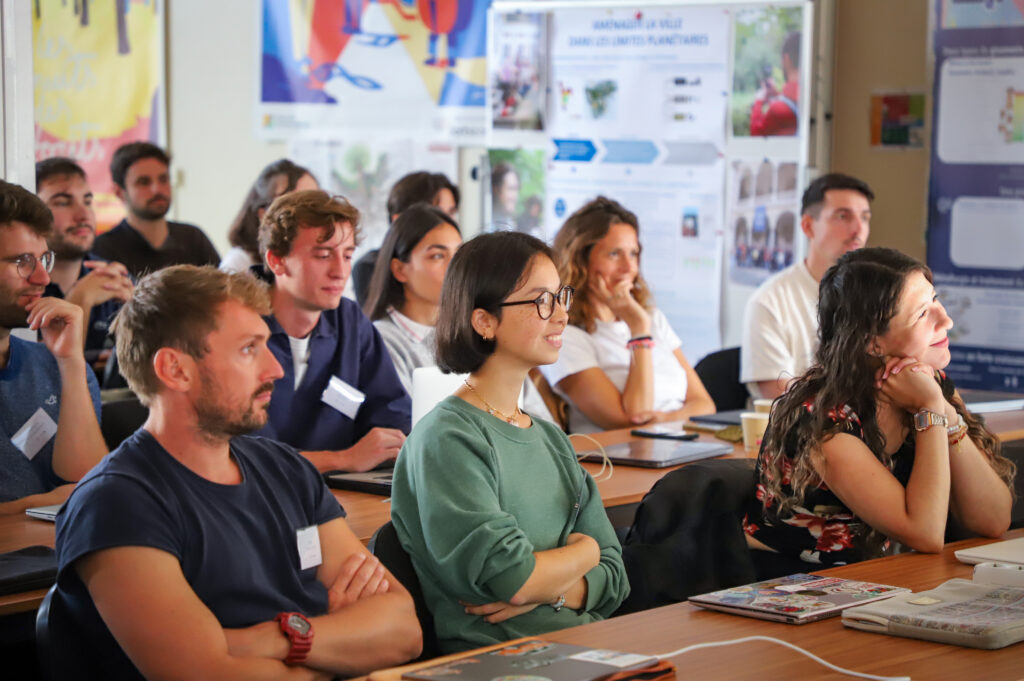
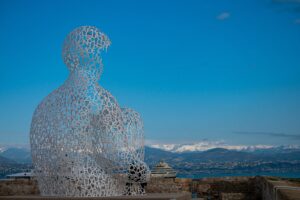
“Engineering is part of the solution, not the problem.”
- Thaught entirely in English
- Developed on an immersive, hands-on pedagogy (learning by doing).
- Engaging you on concrete, impact-driven projects, designed around up-to-date environmental, climatic and societal UNESCO’s Sustainable Development Goals (SDG) challenges.
- Providing you strong foundations in engineering and data sciences and professional skills to solve technical issues from projects.
- Giving you access to partnerships from academia, industry, and local communities.
- Localized in Sophia Antipolis, on the French Riviera, in the heart of Europe’s largest technology campus: an ideal environment to learn, innovate, and thrive.

Overview
🎓 Qualification
Bachelor’s degree in Sciences and Engineering (180 ECTS credits)
⏱️ Duration
3 years (2,000 hours of classes)
🧾 Admission
High school diploma in sciences (see Application section for admission platforms)
🗣️ Language
100 % English (and courses in French as a Foreign Language -FLE)
📍 Campus
|Core curriculum : Sophia Antipolis, France
|Elective curriculum : Sophia Antipolis and Paris Ile-de-France
📆 Pace
- |Full-time with a 6-month international internship &
- |6 engineering, entrepreneurial or research projects
.
✅ CTI Accreditation – State Controlled Engineering Degree
-
-
-
- Recognized excellence in engineering and sciences, aligned with French, European and international standards
-
-
Why joining us?
Joining the I-BE³ bachelor’s program means
Choosing a stimulating learning experience
in an international environment
Rising to the challenge of creating
a more sustainable future
Building unparalleled career prospects
in industry, NGO’s, cutting-edge research centers, public institutions etc.
Be part of top-ranking
engineering schools
A new generation of engineers for a sustainable world
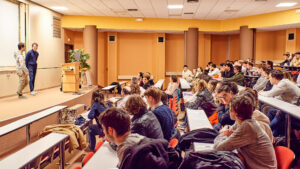
Offered by Université PSL and delivered by Mines Paris – PSL, in collaboration with ESPCI Paris – PSL and Chimie ParisTech – PSL, the I-BE³ is a high-level, fully English-taught program designed for future engineers eager to make a real impact.
The program
3 years – 6 semesters – 180 ECTS Credits
Our future graduate are given the skills needed to design innovative and responsible solutions to face all environmental, climate, societal, and economic issues
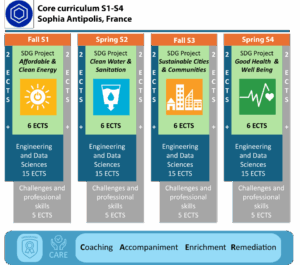
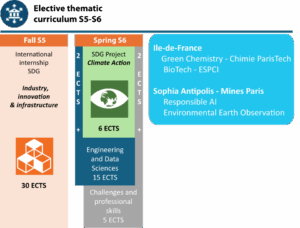
Each semester (except Fall S5) is systematically structured by
Semester SDG Project (6 ECTS)
Corresponding to one of the United Nations’ Sustainable Development Goals (SDG)
Engineering & Data Sciences (17 ECTS)
• Mathematics
• Physics
• Chemistry
• Biology – Geosciences
• Computer Science – Modeling
Engineering Challenges and Professional skills (7 ECTS)
• Engineering and tech challenges
• Work methods and project management, professionalization
• Modern languages
Accreditation by the French Engineering Accreditation Commission (CTI)
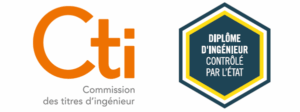 ➔
➔
The active learning experience that trains tomorrow’s engineers
I-BE³ offers a practical, collaborative, and forward-looking learning experience led by faculty members from PSL research centers.
The goal: to learn by doing, using science to tackle major real-world challenges.
Inspired by the spirit of La main à la pâte — a pioneering approach to science education founded by Georges Charpak, Nobel Prize winner in Physics and former student of Mines ParisTech – PSL and ESPCI – PSL — the program supports each student in building a personalized academic and professional path.
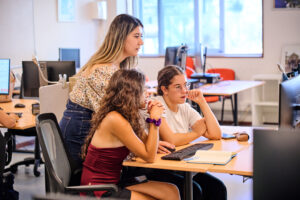
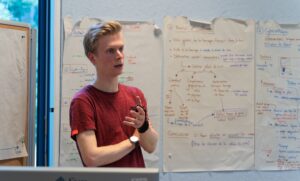
Active and recognized teaching methods
- Skills-based learning: students develop and demonstrate their expertise through concrete projects, documented in a digital portfolio and validated by Open Badges — verifiable certifications attesting to their achievements.
- Real-world projects: each semester, the challenges to be met are inspired by the UN Sustainable Development Goals (SDGs), encouraging responsible and sustainable engineering practices.
- Technological innovation: thanks to exclusive access to Mistral AI, students explore new ways of collaborating, overcoming language barriers, and embracing cutting-edge technologies.
Training agents of change
I-BE³ cultivates autonomy, creativity, and ethical responsibility.
Participants become engaged learners, capable of imagining, designing, and implementing sustainable solutions — true agents of transformation for a more responsible future.
Registration fees are income-based.

Careers
🎓 Reserved access to PSL Graduate Engineering Programs of Mines Paris – PSL, Chimie ParisTech – PSL & ESPCI – PSL
🌍 Open doors to world-class master’s programs
🎯 Multidisciplinary by design, engaged by purpose
🌐 Part of the global PSL alumni community
🌱 Ready to act and lead for transitions
Tuition fees & Scolarship
Flexible and inclusive tuition model
- EU students: €15,000 per year, income-based sliding scale tuition fees.
- Non-EU international students: tuition fees set at €20,000 per year.
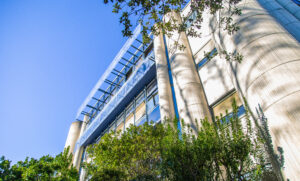
Financial Support Opportunities
PSL and its partners are actively working to develop a range of financial support options to ensure that talented and motivated students can access I-BE³ regardless of their financial situation.
The program is designed to promote social diversity and inclusion, and financial accessibility is a central concern. Discussions are underway to establish need-based and merit-based support schemes, tuition waivers, and mobility grants for international experiences.
As these mechanisms are finalized, detailed information will be shared to help future students plan their studies with confidence.
Application
Online application system: December 2025
The I-BE³ program is open to students preparing for or holding a high school diploma in sciences, such as the French or International Baccalaureate, Swiss Gymnasial Maturité, or European Secondary School Leaving Certificate.
A preliminary selection process
The initial selection is based on a complete application file, which must include:
- Academic transcripts from the last two years
- A cover letter
- A résumé (CV)
- Two letters of recommendation
Language Requirements
- English: Minimum level B2 (Common European Framework of Reference)
- French: Minimum level A2
Applicants may include official language test results (such as TOEFL, IELTS, DELF/DALF, or equivalent) or standardized academic test results (SAT, ACT, TSI).
While these certifications are optional, they will be carefully considered by the selection committee.
Application Routes
- French candidates: Applications are submitted via Parcoursup.
- International candidates: Applications must be completed through our online application system.
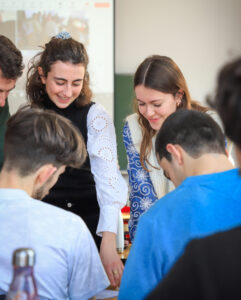
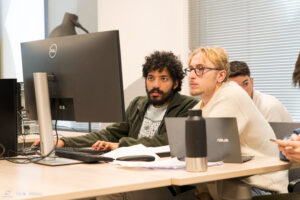
Admission
- Eligible candidates will be invited to a motivational interview conducted in English via videoconference.
- Note : the interview process and tests can be adapted for candidates with declared disabilities.
Calendar
📅 Upcoming events on November 15, 2025
Salon Post Bac du Monde
Forum des Études Supérieures 2025 by Lycée Français Charles de Gaulle de Londres
Campus life
In the heart of the French Riviera
Nestled in an 8-hectare green oasis between the sea and the mountains, the Pierre Laffitte Campus is located in the historic area of Sophia Antipolis, Europe’s leading technology park.
This exceptional natural setting offers a unique lifestyle for students, with year-round access to a wide range of sports and outdoor activities: hiking (Mercantour National Park just 30 minutes away), tennis and padel (at the Mouratoglou Academy, only a 10-minute walk), badminton, yoga on campus with the Doctoral Students’ Association, running, sailing, and scuba diving (the sea is just 30 minutes away).
Each year, the Sophia Club Entreprises hosts a six-week sports festival filled with competitions, discovery events, and fun activities — the perfect opportunity to combine sports, networking, and integration into the local ecosystem.
Finally, as a true source of inspiration, the South of France region is a vibrant place where creativity and talent thrive. Students enjoy access to numerous festivals, museums, exhibitions, and cultural events all year long, making it the perfect balance between academics, sports, and culture.
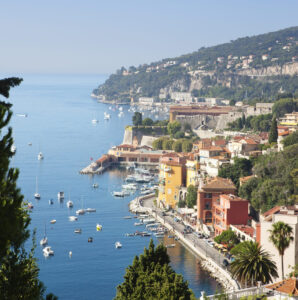
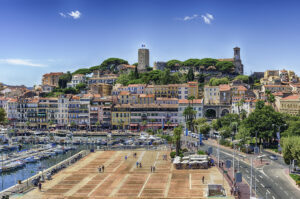
Accommodation
I-BE³ students have access to a wide variety of housing solutions in and around Sophia Antipolis:
- Student residences: CROUS (Les Dolines, Isaac Newton, …), CIV, City Résidence Sophia Valbonne.
- Private residences: Studeapart, Nextcity, Résidence Mouratoglou, Ecotone/Village Sophia.
- Future developments: Campus des Amandiers (from 2027).
- Short- and long-term options: shared flats, double rooms, single rooms.
Catering
Students can access a wide range of affordable and varied dining options:
- CROUS: university restaurant
- Foodtrucks
- World cuisine restaurant offer
- possibility to have lunch on site with a delivery service and a kitchen place
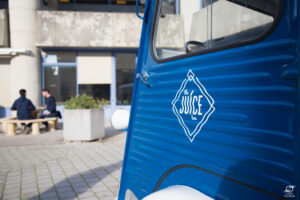
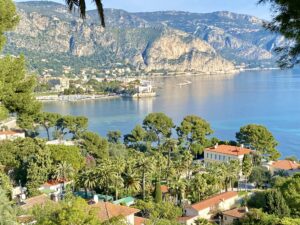
Mobility
The Pierre Laffitte campus is located 20 km from Nice international airport, with direct bus access, and 20 km from Nice train station (national connections via TGV high-speed train).
- Local public transport network : buses and bus-trams serving the metropolitan community. ENVIBUS
- Bike: safe routes suitable for cycling and electric bikes. Getting around by bike
- Train: the regional transport network is a comfortable express trains serving the PACA (Provence Alpes Côte d’Azur) region. Travel with ZOU!
Financial support
The I-BE³ program receives strong backing at both national and regional levels
The project has been selected as a laureate of the “Compétences et Métiers d’Avenir” (Skills and Future Jobs) initiative under France 2030, led by the French Ministry of Higher Education and Research.→ This national recognition supports the program’s start-up phase (2024–2029), funding pedagogical innovation, recruitment, digital transformation, and international outreach to train a new generation of engineers for ecological and digital transitions.
At the regional level, the Région Sud – Provence-Alpes-Côte d’Azur and the Communauté d’Agglomération Sophia Antipolis (CASA) are key partners in the redevelopment of the Pierre Laffitte Campus in Sophia Antipolis. Their commitments include the renovation of teaching facilities, the creation of new engineering and innovation spaces (fablabs, learning center, collaborative labs), and the modernization of campus infrastructure to host the I-BE³ program and its research partners.
Together, these supports reflect a shared ambition to position the campus as a European hub for sustainable engineering education and research.



